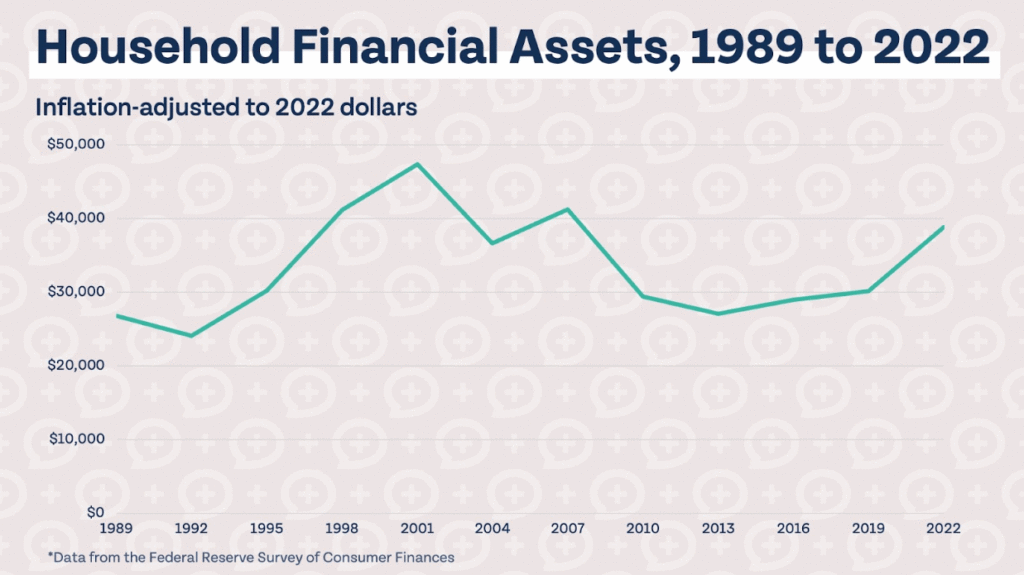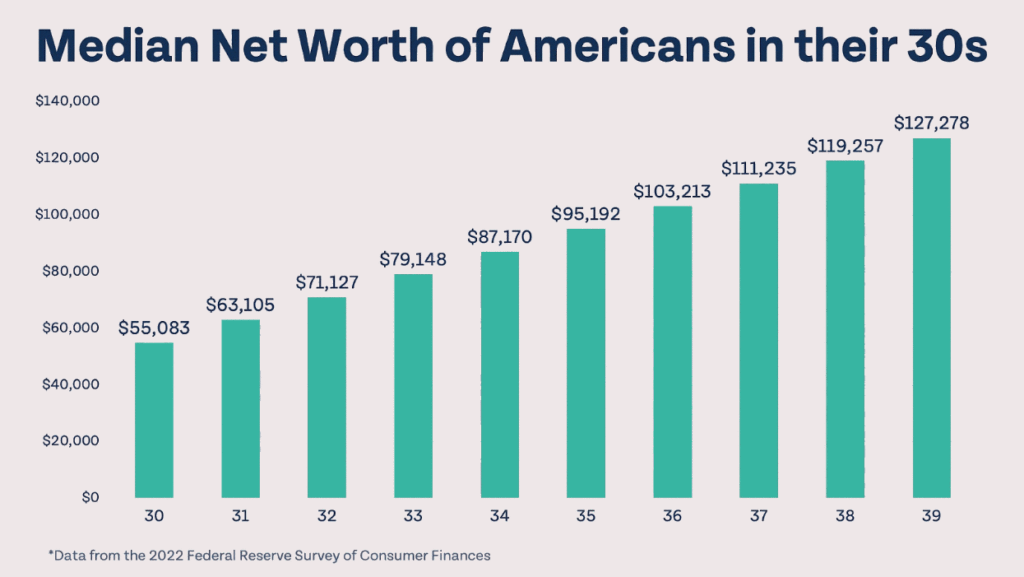Understanding Average Net Worth by Age: What’s Normal at Each Stage of Life

Average net worth by age is a key figure to understand when managing your finances. It helps you know if you are on the right track with your money. Tracking your net worth means adding up all your assets like savings, investments, and property, and then subtracting your debts. By comparing your net worth to others at your age, you can better understand how your financial health stacks up.
What is Average Net Worth by Age?
Understanding average net worth by age helps you see where you stand financially. Net worth is the total of all your assets minus any debts you owe. As you grow older, you’re likely to have more assets and fewer debts, leading to a higher net worth. However, everyone’s situation is different, and factors like career choices, spending habits, and life events can make a big difference.
How Does Age Affect Average Net Worth?
Age plays a big role in shaping your average net worth by age. When you are younger, you typically have fewer assets and more debt, especially if you have student loans or credit card debt. As you get older, you start to earn more money, pay down debts, and accumulate assets like a home or retirement savings, which helps increase your net worth.
Here’s a general look at how age can affect your net worth:
- In Your 20s: Most people have a negative net worth or a small positive amount. This is because of student loans or starting a career with little savings.
- In Your 30s: By this age, many people begin to have a positive net worth. They may have paid off some debt and started saving for retirement.
- In Your 40s and 50s: This is typically when your net worth increases the most. You might have paid off your mortgage, saved for retirement, and built up investments.

Average Net Worth by Age: What’s Normal for Your Generation?
When thinking about average net worth by age, it’s helpful to compare your net worth to others in your generation. Each generation has different challenges and opportunities. For example, Baby Boomers (born between 1946 and 1964) often had more opportunities to save for retirement than Millennials (born between 1981 and 1996), who may face high student debt and housing costs.
Here’s an overview of the average net worth for different generations:
- Baby Boomers: Generally have a higher net worth due to homeownership, retirement savings, and investments.
- Generation X: Still in their prime earning years, their average net worth continues to grow as they invest and save for retirement.
- Millennials: Tend to have a lower net worth due to student loans, housing costs, and early career challenges.
Factors That Can Impact Your Average Net Worth by Age
There are many factors that can affect the average net worth by age. Some things you can control, while others are beyond your control. These include your education, career path, spending habits, and investment choices.
- Debt: High amounts of debt can pull down your net worth, especially when you’re young.
- Income: Earning more money through promotions, side hustles, or better jobs can help you increase your net worth.
- Investments: Wise investment choices, such as in stocks or real estate, can significantly increase your net worth over time.
- Unexpected Expenses: Things like medical bills, family emergencies, or job loss can cause your net worth to decrease.

How to Increase Your Average Net Worth by Age
Want to increase your average net worth by age? The key is to start early and stay consistent. Building wealth takes time, but if you follow a few smart strategies, you can grow your net worth over time.
Here are some tips:
- Pay Off Debt: Focus on paying off high-interest debts first, like credit card debt. This will help free up money to save and invest.
- Save and Invest: Start saving early for retirement in accounts like 401(k)s or IRAs. You should also consider investing in the stock market or real estate.
- Live Below Your Means: Try to avoid spending more than you earn. The less you spend, the more you can save and invest to grow your net worth.
- Increase Your Income: Look for ways to earn more money, like taking on a side job or asking for a raise at work.
Conclusion
Your average net worth by age is a helpful way to gauge your financial health. It shows how well you’re managing your money, paying off debts, and building wealth. While it’s helpful to know where you stand, it’s more important to focus on what steps you can take to improve. By following a plan and sticking to good financial habits, you can increase your net worth over time.
FAQs
Q: What is the average net worth by age 30?
A: The average net worth by age 30 is around $15,000 to $30,000. However, this can vary depending on your career, savings, and debts.
Q: How can I increase my net worth at 40?
A: To increase your net worth at 40, focus on paying off any debt, saving for retirement, and investing in assets like stocks or real estate.
Q: Is it normal to have a negative net worth in my 20s?
A: Yes, it’s normal for people in their 20s to have a negative net worth, especially if they have student loans or are just starting their career.
Q: How does buying a house affect my net worth?
A: Buying a house can increase your net worth if it appreciates in value over time. However, it’s important to manage the mortgage and other costs.
Q: Can my net worth increase quickly?
A: Yes, your net worth can increase quickly if you reduce debt, save more, and make smart investments, but it usually takes time and discipline.



